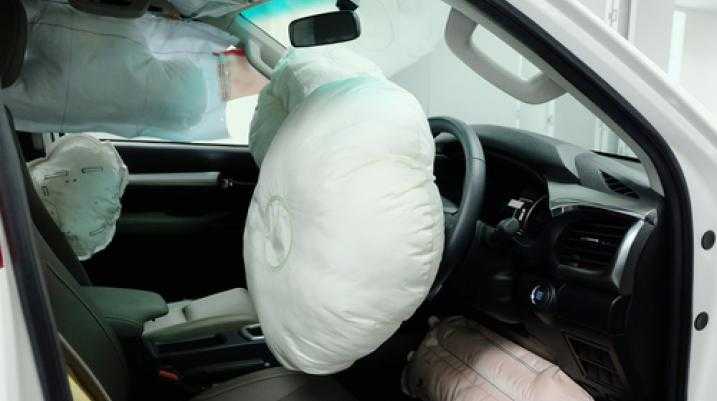ARC Airbag Inflators Leave 2 Dead and 4 Injured

Following a string of deadly accidents that have left four drivers injured and two dead, it has been estimated that tens of millions of vehicles have continued to be affected by faulty airbag inflators.
Over the years, the National Highway Traffic Safety Administration (NHTSA) has sent dozens of letters to over a dozen automakers and suppliers to seek more information on those inflators used for both the driver and passenger-side airbags created by the auto company ARC Automotive, Inc., located in Knoxville, Tennessee. Those letters were the most recent step in the investigation that began over seven years ago by the NHTSA over the faulty inflators.
According to records gathered by the NHTSA, it revealed that a second person was killed by one of the exploding airbag inflators created by the ARC automotive company. ARC has been under investigation for over six years, with no real change or progress in the case as to why or how these faulty inflators have been allowed to continue out on the market.
In 2022, NHTSA posted recall documents filed by General Motors, which revealed that the ARC inflator could and has blown apart and shot out shrapnel, like in a deadly incident involving a 2015 Chevrolet Traverse SUV. Since this and other reports have come out, the NHTSA has said that ARC has manufactured roughly 8 million more inflators that have been used nationwide in vehicles made by General Motors, Fiat Chrysler, now known as Stellantis, Kia, and Hyundai.
The Recall Campaigns Continue
Since the investigation has begun, the auto companies General Motors Company, Ford Motor Company, BMW AG, and Volkswagen AG have issued seven relatively small recall campaigns linked to NHTSA's examination covering about 6,400 vehicles that contain ARC inflators. More recently, in July 2022, Volkswagen issued a recall of about 1,200 vehicles in response to an inflator rupture in a 2016 Audi A3 e-tron that caused an injury to the driver.
According to research conducted by the National Highway Traffic Safety Administration with cases dating back from 2009, an estimated 51 million inflators were potentially affected. Records show that the faulty inflators were installed in cars made between the model years 2002 and 2017. While the NHTSA will not confirm the official number of vehicles affected by the faulty inflators, plaintiff attorneys close to the matter believe the estimate affects more than 30 million cars.
ARC and Takata's Airbags Explode Due to Chemical Compound
As you may have recalled from the previous line of airbags created by the now-bankrupt Takata Corporation of Japan, Takata airbags that were installed in thousands of vehicles all across the world were exploding due to a hazardous chemical component. Similarly, those vehicles with ARC airbags are also at risk of exploding due to the same chemical component known as ammonium nitrate, which is found in the inflator.
But if the chemical compound is so dangerous, then why would these companies even use it in the first place?
Upon activation, the chemical is intended to cause a small explosion in order to inflate the bags. However, unlike the Takata airbags, ARC only uses ammonium nitrate as a secondary method to inflate the airbags. The issue here is that ammonium nitrate can deteriorate when exposed repeatedly to high temperatures and humidity, which in the event of an accident could cause the metal canisters that hold the chemical to blow apart—or even burn too fast, resulting in an even larger explosion.
For safety reasons, drivers are now being urged to report their vehicles if they believe they have ARC airbags. Drivers can investigate whether their cars have been affected by the recall by calling their vehicle manufacturers and providing their vehicle's year, make, and model. Some vehicle manufacturers may require drivers to provide their Vehicle Identification Number or VIN, which is an identifying code composed of 17 characters.
If you believe your vehicle may have faulty ARC airbags or that you were injured because of your airbag, you may be entitled to compensation. For more information regarding this case, you can connect with us today for a free, no-obligation case evaluation.
Injured? Getting the compensation you deserve starts here.

Injured?
Not sure what to do next?
We'll guide you through everything you need to know.